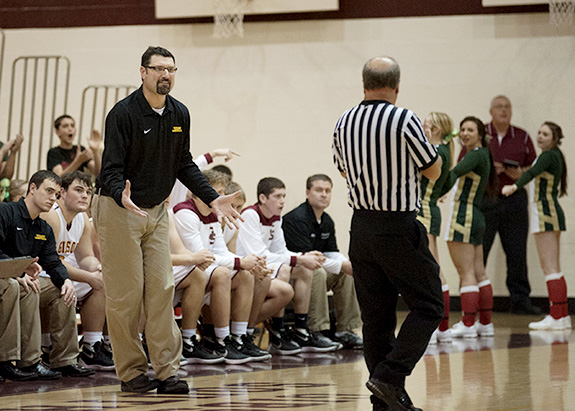Setting the standards for success
 “When we get on campus, the first thing is to set standards for the team.” And B.J. Snow, former UCLA women’s soccer coach and national team coach, is precise about the vocabulary: “It’s not a goals’ session,” he said, “it’s a responsibility session.”
“When we get on campus, the first thing is to set standards for the team.” And B.J. Snow, former UCLA women’s soccer coach and national team coach, is precise about the vocabulary: “It’s not a goals’ session,” he said, “it’s a responsibility session.”
This year’s session took three hours, but Snow knows the time was well-spent. “We want to establish who we are,” said Snow, “and since the players evolve these standards, they take ownership.” And, of course, the standards vary from year to year.
“Every year is a different team,” he said, “and every year there are a different number of standards.” Here are some examples of the standards Snow developed for his UCLA team.1. Communication. If the team and players are not talking, they’re never going to develop the relationships necessary to have success.
2. Trust. Look each other in the eyes; be open and honest.
3. Accountability. Take care of yourself to take care of the team (i.e., eating well, sleeping well, taking care of business in the classroom).
4. Respect. Be on time; show respect for teammates, trainers, coaches, ourselves, the locker room, this opportunity, the opponent.
5. Dedication. Do whatever it takes to make yourself better in order to better the team.
6. Family. Be there for one another through thick and thin; know how to pick each other up; celebrate together; create a home away from home for everyone. For example, someone can donate their services for one lawn mowing, car wash or an evening of babysitting.
7. Enthusiasm. Inspire others with your attitude and your spirit; be passionate and energetic.
8. Mentality. Commit to the endeavor; welcome adversity; acknowledge that there is no substitute for hard work. Say
9. Preparation. Be proactive, plan ahead, stay organized.
10. Poise. Don’t show weakness on the field (i.e. hands on knees when tired, arguing with teammates, complaining, hanging head after making a mistake); be a role model; strive to be a person who people respect and admire.
Rather than have team rules that appear to be arbitrary, the team rules follow from the standards. “If the team we’re going to be lives up to these standards,” said Snow, “then what does that entail?”
For example, being on time to practice falls under respect, but it also could derive from dedication and respect, which means Snow doesn’t have to make that a “rule.” Being on time reflects the standards the team agrees on at the start of the season, and other common team rules also follow directly from the standards set by the players.
The less the players feel the rules are imposed from above, and the more they come from the players themselves, the more likely they are to be followed.
The preseason standards’ meeting is crucial, Snow said, because at that meeting, “We lay the foundation for who we are as a team.”





